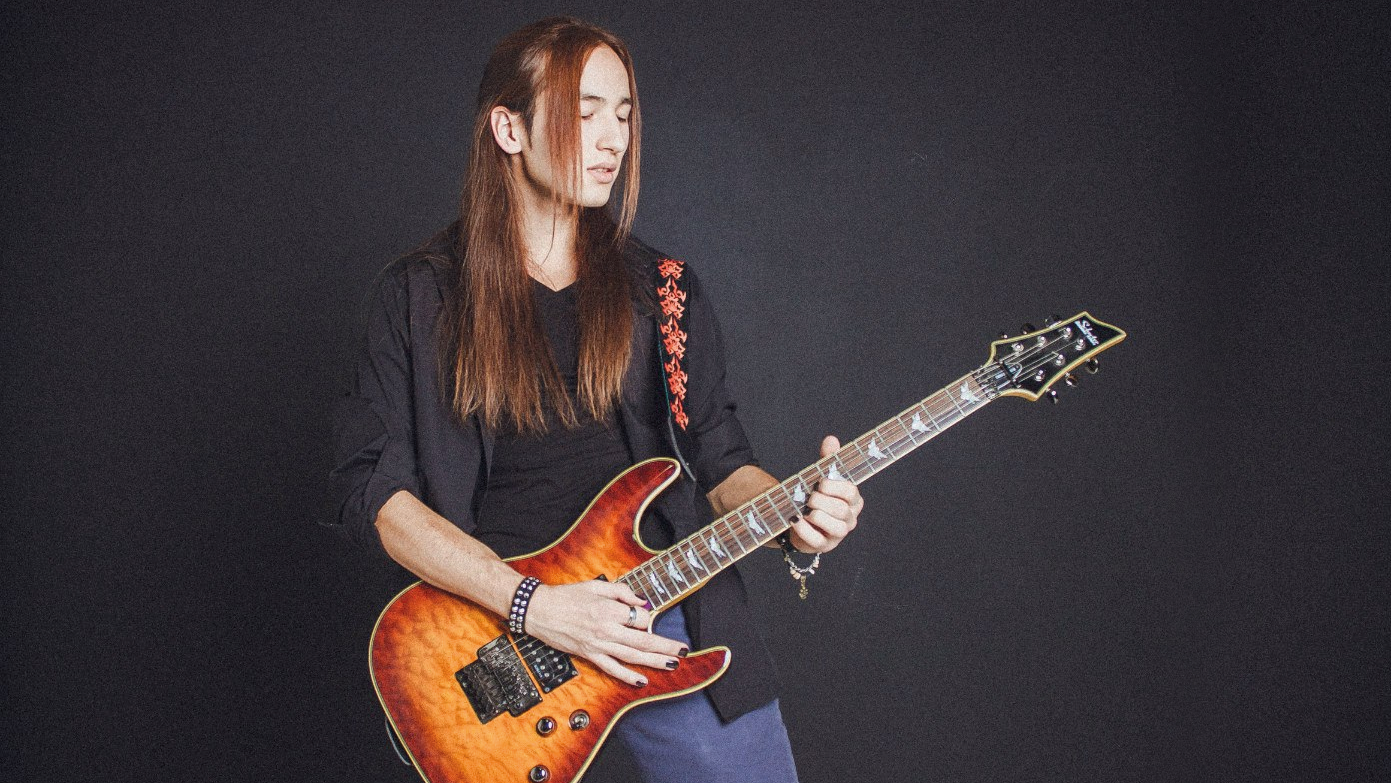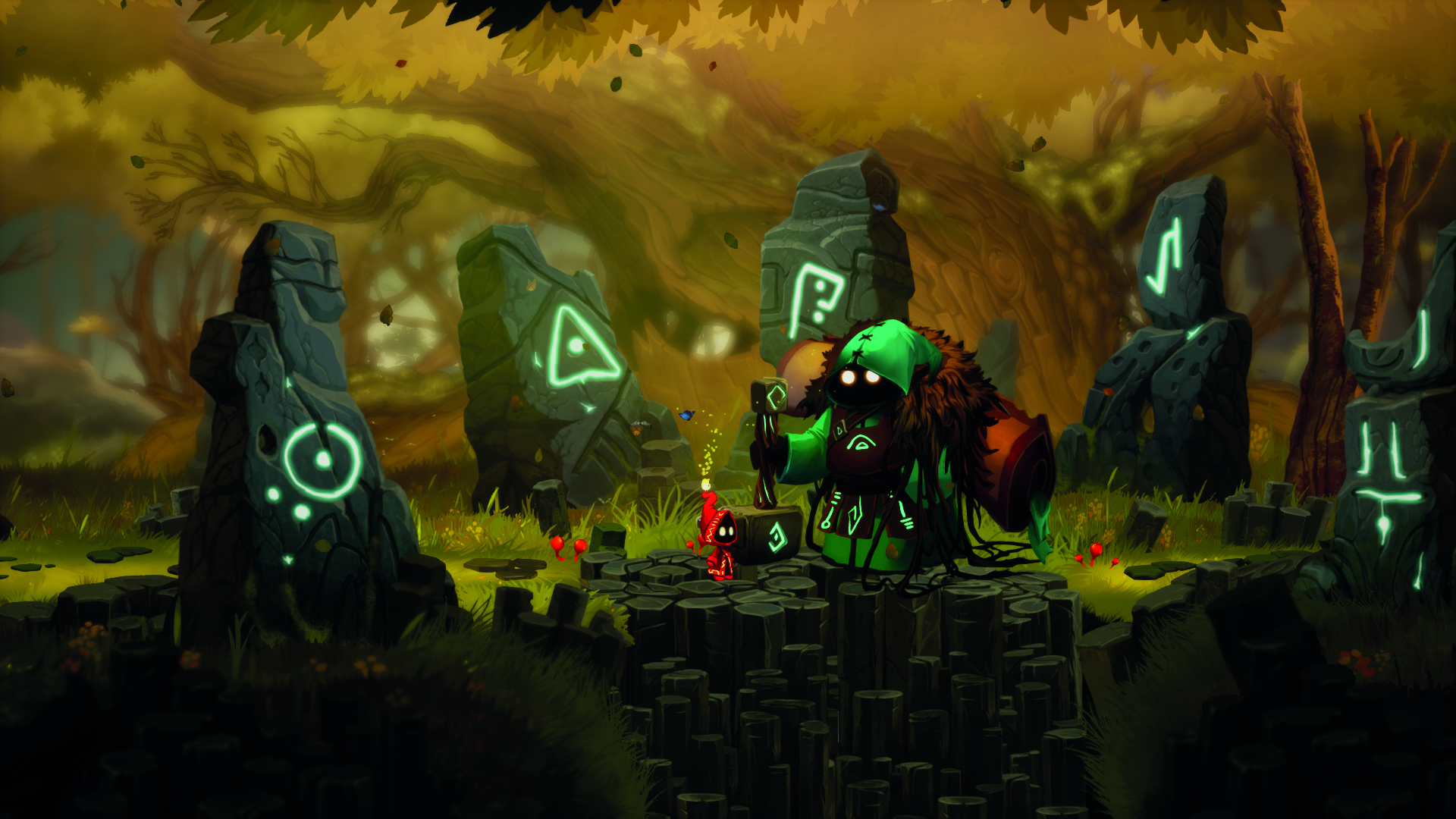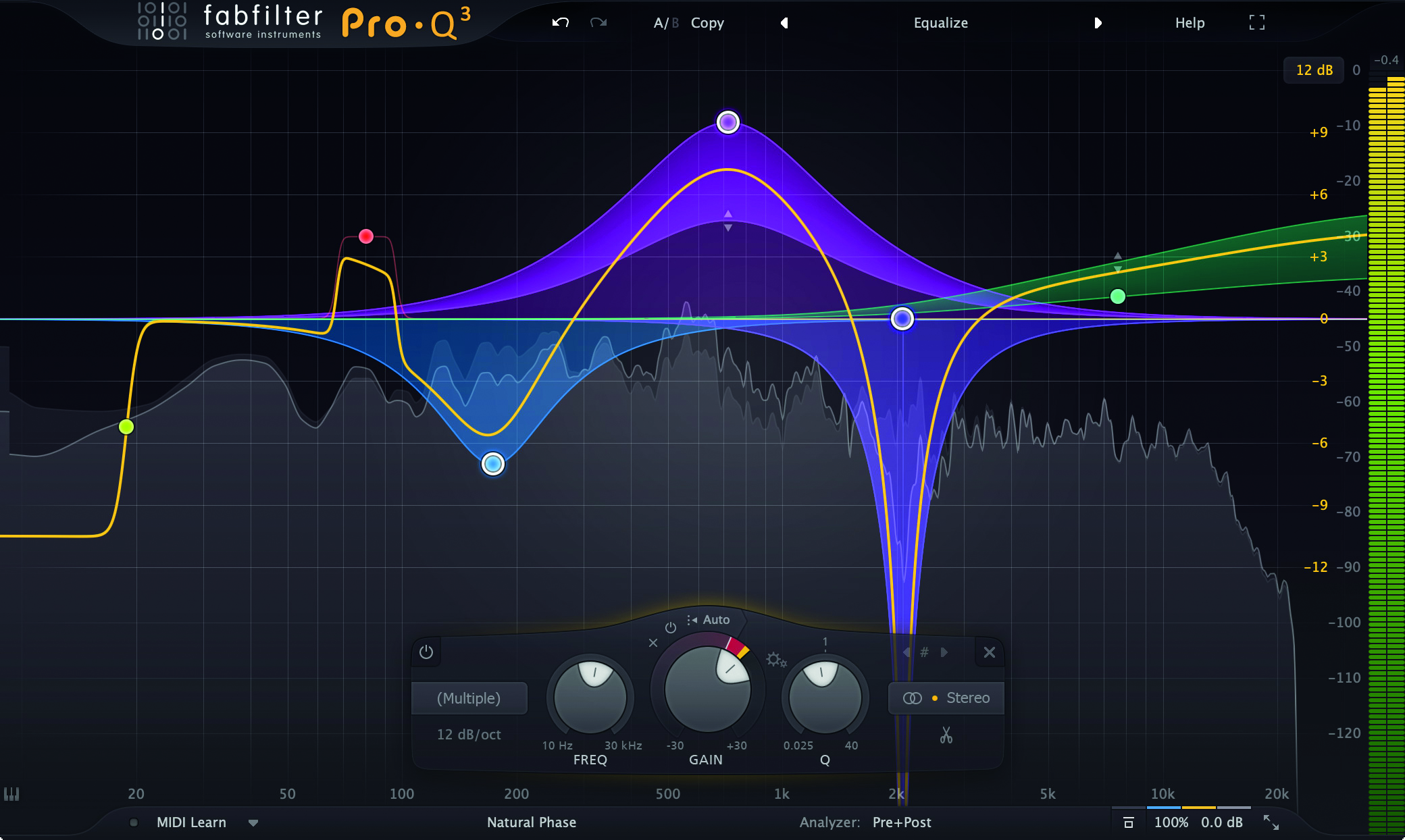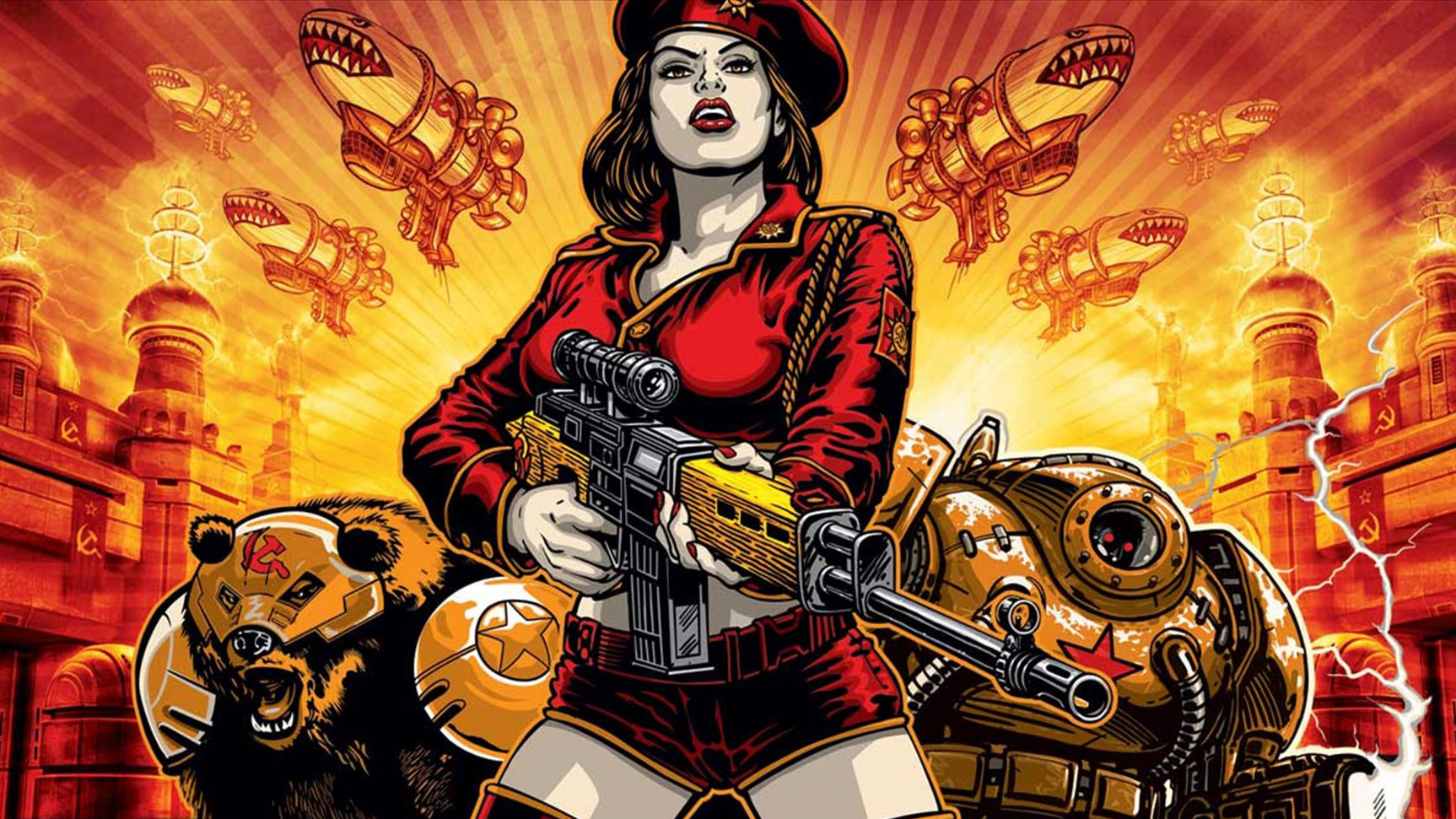Video game composer Alexey Nechaev: "Many composers tend to believe that melodies are not important in game soundtracks, but I completely disagree"
Unbound: Worlds Apart features some of the most sublime music ever to grace the gaming world. Award-winning composer Alexey Nechaev reveals the processes behind the soundtrack

Want all the hottest music and gear news, reviews, deals, features and more, direct to your inbox? Sign up here.
You are now subscribed
Your newsletter sign-up was successful
Alexey Nechaev is an award-winning video game composer who has worked on many high profile games including Inmost, Swag and Sorcery and, most recently, Unbound: Worlds Apart.
This has been a recent hit on Nintendo Switch, Mac and PC and is described as ‘a challenging, atmospheric and hand-drawn puzzle-platformer set in a universe where all worlds are connected by portals’.
Here Alexey details the various challenges faced with composing for the game, his favourite hardware and software, and has some sage words of advice should you wish to follow his path into video game composition…

What advice do you have for anyone wanting to get into game music?
“Strange as it may sound, listen to more game music! I believe that listener experience is the best teacher. You should also listen to movie soundtracks to learn some interesting things. After that, play games and note to yourself what the differences are between game soundtracks and any other kinds of music. It will help you integrate into the games industry, especially if you already compose music.
I composed different music for different game zones. Each location is very unique and has its own mood and tempo
“Also, if your soundtrack has some dynamic changes (when music changes depending on player’s actions), you should try to implement it by yourself, otherwise it will be difficult to understand how things can work in an engine. In other words, study the engine features too, so in the future you would know what can be done with your work.”
Talking of that technical process, can you explain how the music evolves in a game according to character movement? Do you, for example, produce looped sections that can blend into one another as a player moves themselves around?
Want all the hottest music and gear news, reviews, deals, features and more, direct to your inbox? Sign up here.
“I composed different music for different game zones. Each location is very unique and has its own mood and tempo, and that’s how I was trying to compose music and switch it at the right moment.
"Unbound: Worlds Apart, for example, doesn’t have many dynamic layer changes, since it doesn’t have fighting in a common sense of the word, but it is a true platforming. Technically, the music in Unbound is more like switching pieces of compositions, rather than changing layers (when you replace intense soundtrack with a calm one just by changing the volume of tracks).
"For instance, in boss fights these pieces are repeating until the game reaches a certain condition (such as moving to the next stage of battle). On the contrary, in locations, where calm platforming changes to intense ones, the layers are switching. It was made to prevent breaking the rhythm. But overall we used the switching layers quite rarely.”
How did Unbound’s music progress in terms of getting imagery, working sections or using other game details to guide you through the composition?
“Usually, I get access to a game engine right away (in this project it was the Unreal Engine). Then I play and record a video, so I can navigate in-DAW using it. It helps to recall the emotions you get from a game at the right place, to synchronise cutscenes, animations, and so on.”
Is that the same process on every video game project?
“At first, I play a game as much as I can. It’s necessary to feel the rhythm, especially in a platformer. The main challenge there is to make sure that gameplay doesn’t seem too slow or too fast for a player.
"Music has a great influence on this perception, and sometimes it feels like control becomes less responsive. Lately many composers tend to believe that melodies are not important in game soundtracks, but I completely disagree with this and I’m confident about the importance of good melodies.
I always take a few main melodies and carry them through the whole game, so they are often repeated here and there in different variations
"I always take a few main melodies and carry them through the whole game, so they are often repeated here and there in different variations. Generally, my main task is to make a player experience various emotions, to have some associations with a game.
"What I personally bring to a project? I would say that I’m good at reflecting the mood of a game in my music. In fact, I think that developers who invite me to their projects usually need slightly more dark and melancholic atmosphere in music, than other composers can offer.”

When did you get into music production with technology?
“When I was about 12-14 years old, I discovered Guitar Pro, though I can’t really remember what version it was. Back then I began to compose loads of things; mostly it was metal music, so for a very long time I only worked in heavy genres.
"I had to record everything with real instruments (except drums). By the time of my graduation I found out that you can type notes by your mouse in DAW and play it using Kontakt with a beautiful sound. That was crazy!”
What are your favourite or most-used plugins?
“90% of my time I use only FabFilter Pro-Q and Waves’ SSL compressor. I don’t need emulations of equalisers when I have Pro-Q. I’ve tried many other EQs and compressors, but I always come back to these two. Both can solve any task and they don’t ruin the sound.

"Plus, the SSL works really well on any bus (which is logical, because it is a bus compressor). For reverb, I can’t think of any other plugin than Valhalla’s Vintage Verb. It’s not expensive and really nice. You can do anything with it from a small metal barrel to infinitely large spaces.
"Also I like Span from Voxengo, which usually just hangs on my second monitor and lets me know if something goes wrong with the reference frequencies. It’s particularly helpful in the composing stage, letting me easily divide instrument lines by frequencies. I should also mention s(M)exoscope by Smartelectronix.
"As far as I remember, it’s free, but it was a great help to me when I was making the final mastering of the whole Unbound: Worlds Apart album. I wouldn’t say that I rely on analysers like this that often, but for some details it’s irreplaceable.”
My studio is more like a sound designer’s studio rather than a composer’s, because I make sound assets more often than the music itself
How do you typically produce the music for a game? In the studio or all in-the-box?
“It’s almost all in-the-box. But still, some thing were recorded like, for example, the percussion in the desert themes, vocals and other different little things.”
Tell us about the gear in your studio.
“My studio is more like a sound designer’s studio rather than a composer’s, because I make sound assets more often than the music itself. In this case, gear becomes rather useless (aside from some hardware like EQs, compressors etc.).
"In monitoring I use N-Acoustic’s N-Monitors N100 Mk2 passive speakers with their traditional SDY Power 400 amplifier. It’s a very cool Russian-made pair, still new on the market, so you might not have heard about it yet.
"Also I have KRK Rokit 6s and sub 10S2, Beyerdynamic DT990 Pro studio headphones, a Focusrite Scarlett 6i6 audio interface, an M-Audio Keystation 88 keyboard, various guitars, a violin, and different musical and non-musical objects. I record with Røde NTK and Røde NTG3 mics and in the field I use a Zoom H4n pro recorder.”
How do you initially come up with the idea for a soundtrack?
“I usually begin with a melody in my head. It can be played on any instrument. I play it in my mind for some time, and then I record it. When at least a small phrase is done, I start to increase the number of instruments.
"Generally the drums come at the very end. I don’t proceed to them before I make sure that the rhythm and dynamics sound good without them.”
Do you have any characteristic compositional flourishes, any trademark production tricks?
“You can often hear dissonances in my tracks. Sometimes I just hit the keyboard with my arm and pick the most interesting versions of these sounds, clean it for a bit and divide some notes to different instruments. I also only compress the percussion part of the orchestra on the master bus.
"Plucked and other instruments will strike sharply from time to time but, personally, I like it. I like a large dynamic range; it’s particularly cool when you listen to it in the silence of your headphones. I also think lyricism is a strength. Usually I compose very sad music, even if I shouldn’t (so I have to correct it later). I don’t know why, but it is what it is.
"Unbound let me create something new, compose something slightly ‘lighter’ than usual. But the further we go into the plot, the darker the music gets, and by the end, you get more and more peculiar sounds and a 7-string heavy guitar joins the orchestra. Generally, listeners can easily recognise my style because of my music’s character and mood.”
It’s dangerous to get attached to your creations, because any of them can be thrown away any moment
And what advice do you have to complete a track?
“I consider a track finished when I’m tired of making it. I always think about how long a player will stay at a certain place. It’s not like I’m counting the time – I simply note, where it’ll take more time, and where less. So, for example, this track will be three minutes long, and that one will be 30 seconds long.
"People in games often say that a game can’t be finished, and that something can always be polished. Composers should see it the same way. Sometimes I compose tracks as finished pieces, sometimes they suddenly begin or are suddenly interrupted. Sometimes I make a quick draft to put it in a game and see how it will work. And after all it stays in there forever!”
You also got a vocalist to sing on the Unbound soundtrack…
“Yes, we had a collaboration with the talented singer Maisy Kay. She recorded a wonderful stylised fantasy vocal, which you can hear for yourself in the tracks Guardian’s Rest, The Mire and Oasis.”
What other advice have you picked up from working in the game music industry?
“It’s dangerous to get attached to your creations, because any of them can be thrown away any moment (and it’s likely that the villain who does it will be yourself).”
Finally, what else have you got planned for the near future?
“I plan to be more active on social media in future. I can’t even imagine how my employers find me. Plus I would like to improve my portfolio with some other genres. Lithuanian company Flazm Interactive Studio’s Time Loader is out soon.
"For this project I composed some 90s-style synth music, a retro soundtrack with synths and other cool, and I really enjoy those kinds of things. Also I’ve been invited to a new project recently, where I’m going to create something completely different.”
Unbound: Worlds Apart is out now on Nintendo Switch, Mac and PC.


Computer Music magazine is the world’s best selling publication dedicated solely to making great music with your Mac or PC computer. Each issue it brings its lucky readers the best in cutting-edge tutorials, need-to-know, expert software reviews and even all the tools you actually need to make great music today, courtesy of our legendary CM Plugin Suite.
